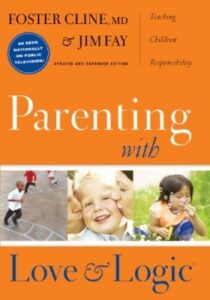The Ripple Effects of Autism Spectrum Disorder on the Family
Angry outbursts and sudden withdrawal, hypersensitivity to touch and sound, yet insensitivity in interpersonal interactions – these seeming contradictions are all too familiar for families of children with autism spectrum disorder.
For these families, life may be draining at times with small tasks requiring much effort. Yet, discovering the world through the lens of an ASD child is something special. It goes without saying that a diagnosis of ASD impacts the entire family. Let’s take a look at the three major players: the child with ASD, the sibling(s) and the parent(s).
1. The Child with the Diagnosis
One way to think about ASD is the distinction between dynamic and static intelligence (Solomon and Chung, 2012). Children with ASD can have average to above average static intelligence. For example, they can remember facts about a topic of interest or rigidly adhere to rules and rituals. But, the struggle is with dynamic intelligence – being able to read the environment and to respond with flexibility. This is why we see kids with ASD often desiring consistency and struggling with transition and novelty.
Hope for Change
Good news! According to Sue Simmons of Equinox Family Consulting, dynamic intelligence can be taught. Dynamic intelligence is the ability to intuitively understand and respond according to a “feedback loop” of interaction. Information is sent out from A and received by B, and feedback is sent from B to A. Parents can help their children begin to understand the feedback loop by…
- Slowing down everyday processes and interactions, explaining them step by step to their child and gradually introducing more novelty (Simmons, 2013).
- Making the feedback more noticeable. Parents can exaggerate the feedback their child would receive based on their behavior by making responses more noticeable. For example, instead of expecting the ASD child to interpret subtle body language, clear and explicit statements like, “when you said/did that, it made me really sad/happy/mad, etc. ” or exaggerated facial expressions when mad/happy/sad/etc. will be more easily understood.
2. The Siblings
The siblings of children with ASD are at risk for higher emotional and behavioral problems (Solomon and Chung, 2012). At times, they may feel invisible – with much attention going to their brother or sister with ASD, the added responsibility required of them, and perhaps with restrictions on social activities. Or, they may feel the pressure to be in the spotlight – to overachieve in order to compensate for their sibling’s limitations (Solomon and Chung, 2012).
Making the “Invisible” Visible
There are many ways to let siblings know they are cared for…
- Risk an outburst. While it is known to be helpful to stick to structure, schedules and routines with children who have ASD, it is okay to vary from this order at times (and potentially be met with a tantrum) to meet the needs of the other siblings.
- Carve out one-on-one bonding time. Or find other creative ways to make them feel special.
- Encourage healthy peer relationships. Perhaps even with other children who have siblings with special needs.
3. The Parents
Learning of their child’s diagnosis is likely a daunting and upsetting experience for most parents. It may take time to learn how to cope with having an ASD child, as well as to learn how to grieve the loss of what they might have hoped and expected their child to be and to achieve. It can also be frustrating that in spite of good parenting skills and much patience, life with an ASD child continues to be challenging and stressful.
Research has shown that there is a “spillover effect” flowing both ways between the parenting relationship and the marital relationship (Goetz, Hickey, Hartley, 2016). A difficult day of parenting the ASD child can lead to the experience of fewer positive couple interactions. Similarly, when there is more negative emotions and tension in the couple’s relationship, it spills over into a more stressful parenting. Interestingly, what tends to be most stressful for parents is not the limitations of the ASD child as much as the handling of the negative behavior (tantrums, rituals, etc.) (Solomon and Chung, 2012). Parents of ASD children are also at risk for more disagreements as to how to best handle these child-related challenges. This can, in turn, cause strain on the marital relationship (Goetz, Hickey, Hartley, 2016).
Care for the Caregivers
Parents can take the following important steps to ensure that they are meeting their own needs and advocating effectively for the entire family…
- Take time to invest in their marital relationship. Go out on dates, seek couples’ counseling, etc.
- Discuss common goals and parenting strategies. Try to have both parents attend doctor appointments, IEP meetings, etc. to be on the same page.
- Develop a strong support network. It can be easy for ASD families to isolate themselves. However, developing a strong support network and seeking out resources for the family will ease some of the burden on the couple’s relationship.
Learning how to balance the needs of the ASD child, sibling(s) and parent(s) will never be easy. But, for families of children with ASD, there is much to be gained in learning patience and compassion.
References:
Solomon, A.H. and Chung, B. (2012) Understanding Autism: How Family Therapists Can Support Parents of Children with Autism Spectrum Disorders. Family Process 51:250-264.
http://www.apa.org/pi/disability/resources/publications/newsletter/2016/09/parents-children-autism.aspx
Contributed by
Supervised by Amy Fuller, PhD, LMFT-S


 Tamara Tatum, LMFT-Associate
Tamara Tatum, LMFT-Associate






